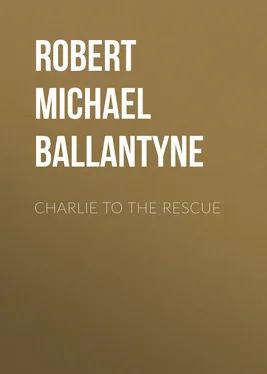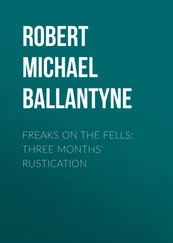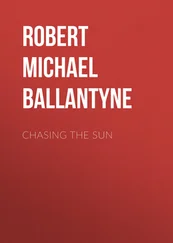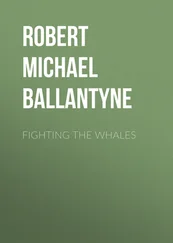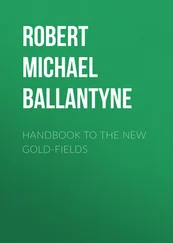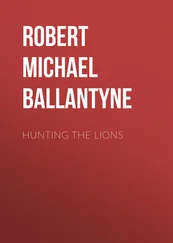Robert Michael Ballantyne - Charlie to the Rescue
Здесь есть возможность читать онлайн «Robert Michael Ballantyne - Charlie to the Rescue» — ознакомительный отрывок электронной книги совершенно бесплатно, а после прочтения отрывка купить полную версию. В некоторых случаях можно слушать аудио, скачать через торрент в формате fb2 и присутствует краткое содержание. Жанр: Детские приключения, literature_19, foreign_antique, foreign_prose, foreign_children, на английском языке. Описание произведения, (предисловие) а так же отзывы посетителей доступны на портале библиотеки ЛибКат.
- Название:Charlie to the Rescue
- Автор:
- Жанр:
- Год:неизвестен
- ISBN:нет данных
- Рейтинг книги:4 / 5. Голосов: 1
-
Избранное:Добавить в избранное
- Отзывы:
-
Ваша оценка:
- 80
- 1
- 2
- 3
- 4
- 5
Charlie to the Rescue: краткое содержание, описание и аннотация
Предлагаем к чтению аннотацию, описание, краткое содержание или предисловие (зависит от того, что написал сам автор книги «Charlie to the Rescue»). Если вы не нашли необходимую информацию о книге — напишите в комментариях, мы постараемся отыскать её.
Charlie to the Rescue — читать онлайн ознакомительный отрывок
Ниже представлен текст книги, разбитый по страницам. Система сохранения места последней прочитанной страницы, позволяет с удобством читать онлайн бесплатно книгу «Charlie to the Rescue», без необходимости каждый раз заново искать на чём Вы остановились. Поставьте закладку, и сможете в любой момент перейти на страницу, на которой закончили чтение.
Интервал:
Закладка:
“No chance, I fear, of our ever meeting again,” remarked the mate, as he cast a wistful look at the southern horizon where the sail of the long-boat could be barely seen like the wing of a sea-gull. “Your lot has been cast with us, Mr Brooke, so you’ll have to make the best of it.”
“I always try to make the best of things,” replied Charlie. “My chief regret at present is that Raywood and I, being two extra hands, will help to consume your provisions too fast.”
“Luckily my appetite is a poor one,” said Raywood, with a faint smile; “and it’s not likely to improve in the circumstances.”
“I’m not so sure o’ that sir,” returned the mate, with an air that was meant to be reassuring; “fresh air and exposure have effected wonders before now in the matter of health—so they say. Another pull on the halyards, Dick; that looks like a fresh squall. Mind your sheets, Will Ward.”
A prompt “Ay, ay, sir” from Dick Darvall and the cabin-boy showed that each was alive to the importance of the duty required of him, while the other men—of whom there were six—busied themselves in making the tarpaulin coverings more secure, or in baling out the water which, in spite of them, had found its way into the boat.
Charlie rose and seated himself on the thwart beside the fine-looking seaman Dick Darvall, so as to have a clearer view ahead under the sail.
“Long-boat nowhere to be seen now,” he murmured half to himself after a long look.
“No, sir—nor the other boat either,” said Darvall in a quiet voice. “We shall never see ’em no more.”
“I hope you are wrong,” returned Charlie; “indeed I feel sure that the weather will clear during the night, and that we shall find both boats becalmed not far off.”
“Maybe so, sir,” rejoined the sailor, in the tone of one willing to be, but not yet, convinced.
Our hero was right as to the first, but not as to the second, point. The weather did clear during the night, but when the sun arose next morning on a comparatively calm sea neither of the other boats was to be seen. In fact every object that could arrest the eye had vanished from the scene, leaving only a great circular shield of blue, of which their tiny craft formed the centre.
Chapter Seven.
Adrift on the Sea
“You are ill, Will Ward,” was Dick Darvall’s first remark when there was sufficient daylight to distinguish faces.
“You’re another!” was the cabin-boy’s quick, facetious retort, which caused Darvall to smile and had the effect of rousing the half-sleeping crew.
“But you are ill, my boy,” repeated the seaman earnestly.
“No, Dick, not exactly ill,” returned Will, with a faint smile, “but I’m queer.”
Each man had spent that stormy night on the particular thwart on which he had chanced to sit down when he first entered the boat, so that all were looking more or less weary, but seamen are used to uncomfortable and interrupted slumbers. They soon roused themselves and began to look about and make a few comments on the weather. Some, recurring naturally to their beloved indulgence, pulled out their pipes and filled them.
“Have ’ee a light, Jim?” asked a rugged man, in a sleepy tone, of a comrade behind him.
“No, Jack, I haven’t” answered Jim, in a less sleepy tone, slapping all his pockets and thrusting his hands into them.
“Have you , Dick?” asked the rugged man in some anxiety.
“No, I haven’t,” replied Darvall, in a very serious voice, as he also took to slapping his pockets; “no—nor baccy!”
It was curious to note at this point how every seaman in that boat became suddenly sympathetic and wide awake, and took to hasty, anxious examination of all his pockets—vest jacket, and trousers. The result was the discovery of a good many clay pipes, more or less blackened and shortened, with a few plugs of tobacco, but not a single match, either fusee or congreve. The men looked at each other with something akin to despair.
“Was no matches putt on board wi’ the grub an’ other things?” asked Jim in a solemn tone.
“And no tobacco?” inquired the mate.
No one could answer in the affirmative. A general sigh—like a miniature squall—burst from the sailors, and relieved them a little. Jim put his pipe between his lips, and meekly began, if we may say so, to smoke his tobacco dry. At an order from the mate the men got out the oars and began to pull, for there was barely enough wind to fill the sail.
“No rest for us, lads, ’cept when it blows,” said the mate. “The nearest land that I know of is five hundred miles off as the crow flies. We’ve got a compass by good luck, so we can make for it, but the grub on board won’t hold out for quarter o’ that distance, so, unless we fall in with a ship, or fish jump aboard of us, ye know what’s before us.”
“Have we any spirits aboard?” asked the rugged man, in a growling, somewhat sulky, voice.
“Hear—hear!” exclaimed Jim.
“No, Jack,” returned the mate; “at least not for the purpose o’ lettin’ you have a short life an’ a merry one. Now, look here, men: it has pleased Providence to putt you an’ me in something of a fix, and I shouldn’t wonder if we was to have some stiffish experiences before we see the end of it. It has also pleased Providence to putt me here in command. You know I’m not given to boastin’, but there are times when it is advisable to have plain speakin’. There is a small supply of spirits aboard, and I just want to tell ’ee—merely as a piece of useful information, and to prevent any chance o’ future trouble—that as I’ve got charge o’ them spirits I mean to keep charge of ’em.”
The mate spoke in a low, soft voice, without the slightest appearance of threat or determination in his manner, but as he concluded he unbuttoned his pilot-cloth coat and pointed to the butt of a revolver which protruded from one of his vest pockets.
The men made no reply, but instinctively glanced at the two biggest and strongest men in the boat. These were Charlie Brooke and Dick Darvall. Obviously, before committing themselves further, they wished, if possible, to read in the faces of these two what they thought of the mate’s speech. They failed to read much, if anything at all, for Charlie’s eyes were fixed in dreamy expressionless abstraction on the horizon, and Dick was gazing up into the clouds, with a look of intense benignity—suggesting that he was holding pleasant intercourse with any celestial creatures who might be resident there.
Without a word the whole crew bent to their oars, and resigned themselves to the inevitable. Perhaps if each man had expressed his true feelings at that moment he would have said that he was glad to know there was a firm hand at the helm. For there are few things more uncomfortable in any community, large or small, than the absence of discipline, or the presence of a weak will in a position of power.
“But I say, Will,” remarked Darvall, who pulled the stroke-oar, “you really do look ill. Is anything the matter with ’ee?”
“Nothin’, Dick; ’cept that I’m tired,” answered the cabin-boy.
“Breakfast will put that right” said our hero in an encouraging tone. “Let’s feel your pulse. Hm. Well, might be slower. Come, Captain,” he added, giving the mate his new title as he turned to him, “will you allow me to prescribe breakfast for this patient?”
“Certainly, Doctor,” returned the mate cheerily. “Come, lads, we’ll all have breakfast together.”
In a few minutes the biscuit and salt junk barrels were opened, and the mate measured out an exactly equal proportion of food to each man. Then, following the example of a celebrated commander, and in order to prevent dissatisfaction on the part of any with his portion, he caused one of the men to turn his back on the food, and, pointing to one of the portions said, “Who shall have this?”
Читать дальшеИнтервал:
Закладка:
Похожие книги на «Charlie to the Rescue»
Представляем Вашему вниманию похожие книги на «Charlie to the Rescue» списком для выбора. Мы отобрали схожую по названию и смыслу литературу в надежде предоставить читателям больше вариантов отыскать новые, интересные, ещё непрочитанные произведения.
Обсуждение, отзывы о книге «Charlie to the Rescue» и просто собственные мнения читателей. Оставьте ваши комментарии, напишите, что Вы думаете о произведении, его смысле или главных героях. Укажите что конкретно понравилось, а что нет, и почему Вы так считаете.
